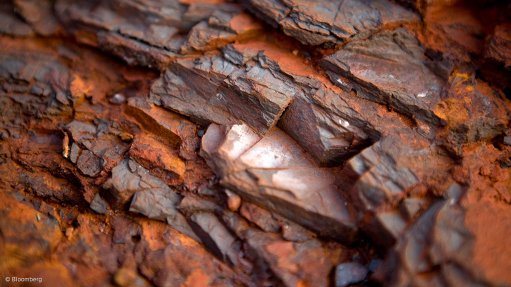
Photo by: Bloomberg
PERTH (miningweekly.com) – ASX-listed Iron Road has unveiled plans to halve the size and costs of its Central Eyre iron project (CEIP), in South Australia.
The company said that the new plan was driven by a clear industry preference to maximise capital efficiency. As a result, annual targeted output has been reduced from the 24-million tonnes a year previously considered, to 12-million tonnes a year, over an initial 22-year mine life.
The project’s total capital costs have also been reduced by about 50%, to $645-million from $1.3-billion, while the mine operating costs have remained in line with the 2017 estimations of $23.8/t iron concentrate.
Iron Road said on Tuesday that the scale of the former mining and beneficiation proposal, along with the supporting infrastructure required for the CEIP, had indicated that up-front capital of some $4-billion would be required, which had proven prohibitive for potential partners.
The company noted that the volatile commodity markets and a sustained environment where corporate strategies remained heavily skewed towards capital management in preference to growth, have also been key inhibiting factors.
“In the absence of timely Chinese-backed equity funding materializing for the CEIP and following constructive feedback from other potential investors, the company initiated work assessing the viability of a smaller start-up mine with a production target of approximately 12-million tonnes a year of iron concentrate,” Iron Road said in a statement on Tuesday.
“It was anticipated that reducing the immense scale of material movements would result in much lower development capital options for the CEIP and a team of openpit mine experts were engaged to assist with the work.”
The restructure of the mine plan has also had numerous downstream implications, including reducing the process plant requirements, lowering water usage and reduced costs associated with other mine site and off-site facilities.
In addition to the capital cost savings, mine electrical power demand has also decreased by some 80%.
Additionally, the lower production rate also meant that an alternative low capital option was now viable for the 148 km transportation of iron concentrate to the proposed Port at Cape Hardy, for export.
The impact of these changes were currently being evaluated by Iron Road, with the company telling shareholders that results of the work, as well as fresh appraisals of project economics would be released to the market later this quarter.